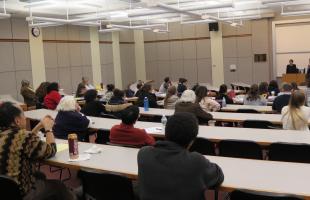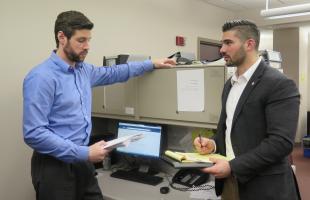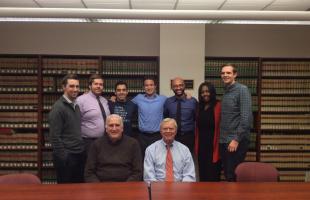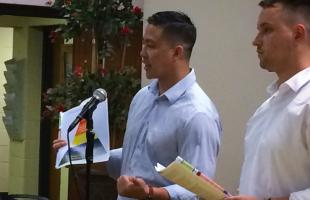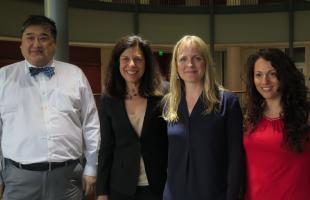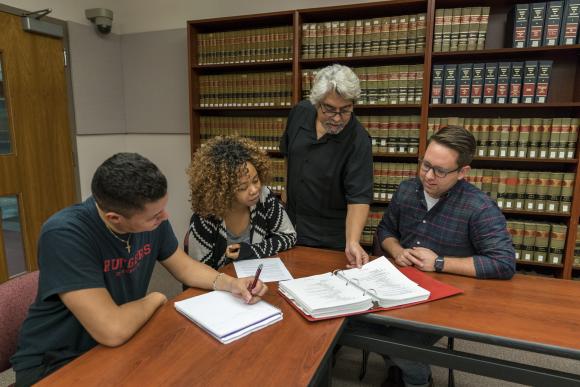
Students in the Community and Transactional Lawyering Clinic assist local non-profits and businesses with their legal needs.
Rutgers' Award-Winning Legal Clinics Are National Models
Rutgers Law School is a pioneer in clinical education and currently boasts 16 clinics across its two campuses in Newark and Camden where student casework for actual clients is principally supervised by full-time Rutgers Law faculty.
Rutgers clinic students have:
- Freed wrongfully imprisoned persons
- Helped qualified immigrants receive asylum
- Obtained appropriate educational services for children with disabilities
- Protected victims of domestic violence
- Formed corporate non-profits
- Worked on copyrights and trademarks
- Completed Congressional and public policy research
- Filed amicus briefs in cases in the nation's and state's highest courts
U.S. News & World Report ranks Rutgers Law School’s Clinical Training 8th in the nation among all law schools and 4th among public law schools (2023).
Students in the clinical education programs learn lawyering skills and development of professional identity, working with clients on numerous issues - including Constitutional Rights, International Human Rights, Domestic Violence, Non-Profit and Small Business Development, Intellectual Property, Children's Rights, Criminal and Civil Justice, and many others.
Click here to view the Rutgers Law School Clinic Newsletter for Fall 2022
Click here to view the Rutgers Law School Clinic Newsletter for Fall 2023
Contact Rutgers Law Clinics in Camden at (856) 225-6568
Contact Rutgers Law Clinics in Newark at (973) 353-5576
- Learning Professional Skills
- Meet Clinic Students
- Widely Published Faculty Expertise
- Award-Winning Clinical Leadership
- Clinic Docket Highlights
